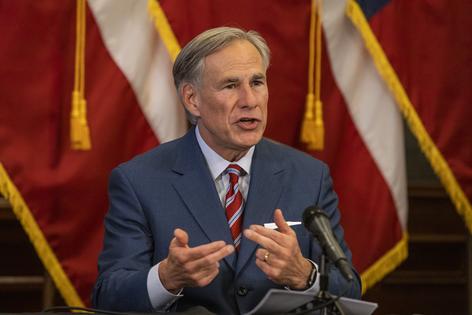Texas Abortion Law, and High Court Ruling On It, Remind Us That Elections Matter
It didn’t take much longer than a nanosecond after the Supreme Court allowed a radical Texas anti-abortion law to take effect before the social media hashtag TexanTaliban went viral.
What? Comparisons to the brutal, misogynistic Taliban? That’s more than a little extreme in itself, right? But then, so is the new Texas anti-abortion law.
The abortion measure, which Texas Gov. Greg Abbot signed into law in May, went into effect on Wednesday. Among other limits, it prohibits Texas abortions as early as six weeks, which is before most women even know they are pregnant.
Worse, it passes the law enforcement vigilante-style from the state to private citizens by providing bounties, in effect, to those who want to sue anyone who plays even a small part in aiding a woman’s ability to terminate her pregnancy.
As critics point out, this could lead to lawsuits against friends, family members, medical professionals, abortion funds, rape crisis counselors and even the taxi or ride-sharing driver who takes a woman to abortion services.
While defenders of the law play down how much it might be used to bombard abortion providers with lawsuits, a whistleblower website invites anonymous tipsters. Not surprisingly, it was immediately inundated by spammers.
But as a matter of judicial integrity and public confidence in the decisions of the nation’s highest court, more sweeping questions have been raised not only about the justices’ decision, but also how they allowed the Texas law to go into effect — without public deliberation or transparency.
That shortcoming was enough to ignite a Friday announcement from U.S. Sen. Dick Durbin, an Illinois Democrat: The Senate Judiciary Committee he chairs will hold a hearing about the new law, he said, and, more broadly, the decisions made by the Supreme Court on an emergency basis, as this one was.
Durbin decried the conservative justices’ “abuse of the shadow docket,” which refers to emergency decisions that don’t follow normal procedure. Under the shadow docket, a term coined by University of Chicago law professor William Baude, it takes only an appeal to one justice who then decides whether to forward the matter to the rest of the court.
We’ve been hearing more talk about this decades-old procedure in recent times, Durbin noted, as it has been used to overturn the Biden administration’s COVID-19 eviction moratorium and reject the administration’s decision to repeal the Trump administration’s “Remain in Mexico” immigration program, as it is informally known.
Now a 5-4 majority of the high court has used it to allow the Texas abortion law to take effect instead of the more customary move in such controversial cases of blocking its enforcement while appeals go forward.
Yes, if you’re keeping score, even Chief Justice John Roberts joined the court’s three liberal members in opposition, writing in his dissenting opinion that he would have blocked this law because of its serious consequences. But his vote was not enough to tilt the balance away from his fellow conservatives who dominate the court 6-3, thanks to the three justices appointed by then-President Donald Trump.
As if my liberal friends and neighbors needed any reminders, elections matter. We see in the current court’s makeup a triumph of concerted efforts in recent decades by culture-war conservatives, campaigning from the local school boards up to state legislatures and Congress, to elect officeholders who will undo such landmark liberal reforms as the 1973 Roe v. Wade decision that legalized abortion nationwide.
That decision stands out in my memory as one of the court’s most consequential decisions since its 1954 Brown v. Board of Education decision to desegregate schools. I’ve been dismayed in more recent decades by how much the decision has become a potential victim of its own success.
Young women who have fought for the right to choose increasingly have taken it for granted, polls show, but the latest wave of bills, conservative legislatures and conservative judges have put this year on track to become the “most devastating antiabortion state legislative session in decades.” That’s according to the Guttmacher Institute, a pro-abortion rights organization whose research is quoted by both sides.
Whichever side wins in these nationwide battles, one sad fact persists: The poor tend to be penalized the most. Women of means can find alternatives more easily, depending on their resources.
The good news in recent decades has been a decline in abortions as birth control has become more available. The goal, as Bill Clinton said in his campaign for the presidency, is to make abortion “safe, legal and rare.” It was an inspired slogan to bridge a broad range of political views. Unfortunately, it didn’t last long enough.
========
(E-mail Clarence Page at cpage@chicagotribune.com.)
©2021 Clarence Page. Distributed by Tribune Content Agency, LLC.
(c) 2021 CLARENCE PAGE DISTRIBUTED BY TRIBUNE MEDIA SERVICES, INC.










